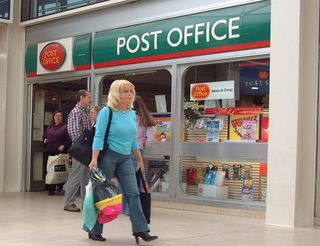Post Office uses barcodes to authorise cash payouts to public
Payout service for money transfers will allow users to receive a bar code on paper or electronically, have it scanned in a Post Office and receive the cash payout associated to it over the counter.

The Post Office has launched an innovative service to allow organisations to send money to people for collection at its nationwide network of branches.
Called Payout, the new payment service is a modern spin on the humble postal order, allowing companies and government agencies to distribute immediate cash payments and promotional incentives such as competition prizes and mobile phone contract cashback at a fraction of the cost of issuing a business cheque.
Instead, people receive a barcode, either on paper or electronically via their phone or email. This can then be scanned at a Post Office counter and the cash handed over. Additional security checks and signature capture can also be performed at this stage for high-value payouts.
"Using Payout ensures that businesses can improve response rates, at the same time as making significant cost savings on activities which have previously paid out using cheques" said Post Office marketing director Gary Hockey-Morley.
The Post Office itself has already used the service as a means to send 50 cash back payments to its car insurance customers, while both British Gas and Unilever conducted trials using the service to apply payments to customers.
"We didn't have a clear fulfilment process in place to make a large quantity of small payments to our customers" said Joanna Weston, direct communications executive at Unilever. "This could have been problematic for us as raising a cheque is 600 per cent more expensive than using Payout".
As the retail arm of Royal Mail, the Post Office has struggled to curb mounting losses and falling demand for its services in recent years in the face of direct payments of state benefits into bank accounts and the loss of over-the-counter TV Licence renewal business. It has tried several things to generate new steams of business including selling insurance and credit cards, and offering basic over-the-counter banking services on behalf of several high-street banks, while at the same time axing many rural branches and merging other branches with local and chain retailers such as WH Smith in order to cut costs.
Get the ITPro. daily newsletter
Receive our latest news, industry updates, featured resources and more. Sign up today to receive our FREE report on AI cyber crime & security - newly updated for 2024.




